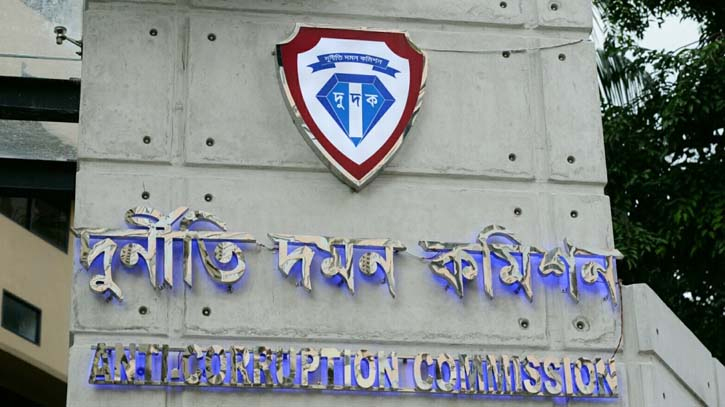
Photo : Collected
In the case of importing raw materials for medicine, some come through official importers, while others come through the black market. Moreover, some importers sell parts to black marketers. Unfortunately, after licensing pharmaceutical companies, the drugs' quality is not properly checked at regular intervals. Even though there is a rule to use raw materials from one source for one drug, it is often disregarded. The quality of various drugs sold locally is not checked periodically.
The Anti-Corruption Commission (ACC) has identified such 10 areas of corruption within the Directorate General of Drug Administration (DGDA). The government agency against corruption has recommended five measures to combat this corruption. These recommendations were communicated in a letter sent to the Cabinet Department.
In the letter addressed to the Cabinet Secretary, ACC Secretary Mahbub Hossain highlighted that corruption in the drug administration sector mainly occurs in specific fields: the establishment of new pharmaceutical units, import and preparation of raw materials and drugs, and the preparation and use of wrappers or packets. The Department of Drug Administration's approval is required for each of these cases. Some service seekers try to expedite the process by offering bribes to dishonest employees involved in the drug administration sector. These bribes do not align with the prescribed fees. Additionally, some drug dealers attempt to run pharmacies without licenses or pharmacists, and many fail to renew their licenses on time, resulting in the sale of expired or substandard drugs.
Certain pharmaceutical companies influence doctors to prescribe their low-quality and unnecessary medicines in exchange for various gifts and opportunities to travel abroad. The ease of the medicine buying or selling procedure in the country allows anyone to buy and sell any kind of medicine. Although there is a requirement to have a pharmacist in pharmacies, it is often not followed. Sometimes, medicine sellers themselves play the role of doctors or sell low-quality medicine to patients, posing a risk to public health.
Due to syndicates, consumers are forced to buy life-saving and essential medical devices, such as heart rings or stents, eye lenses, contact lenses, and pacemakers, at higher prices from traders or suppliers.
Many officials responsible for the Department of Drug Administration are involved in various irregularities and corruption. They play a direct and indirect role in obtaining licenses for substandard drugs by accepting financial and other benefits from pharmaceutical companies. They also fail to take appropriate action against sellers of expired medicines.
The ACC's five-point recommendation to prevent these corruptions is as follows—introduce a system of online application, fee collection, and approval for issuing and renewing licenses; consider implementing a mobile app usage system; bring the entire process under automation; establish a time table for the licensing process; and simplify the process by reducing unnecessary steps. Furthermore, all relevant information regarding the licensing process, including required documents, the number of copies to be submitted, and the total fees, should be made publicly available on the website.
The drug administration often takes legal action against the culprits, but they lack legal experts with expertise in both medicine and the law. It is essential to undertake institutional capacity building initiatives by increasing technical skills, manpower, and recruiting experts.
It should be made compulsory to have licenses and pharmacists in medicine stores gradually. Strict prohibitions should be implemented against the sale and purchase of medicines without a doctor's prescription and without the presence of a pharmacist, as well as treating patients by anyone other than a doctor. Frequent monitoring should be conducted to prevent the sale of expired or substandard drugs.
To prevent the preparation of substandard drugs, the quality of drugs should be thoroughly checked at regular intervals after granting licenses to pharmaceutical companies. Measures should be taken to address the issue of gifts given to doctors by pharmaceutical companies.
Strict monitoring of adherence to reasonable rates by various medical devices and drug companies should be established. A pricing policy should be in place to enable periodic monitoring of companies, the letter mentioned.
TDM/SD








